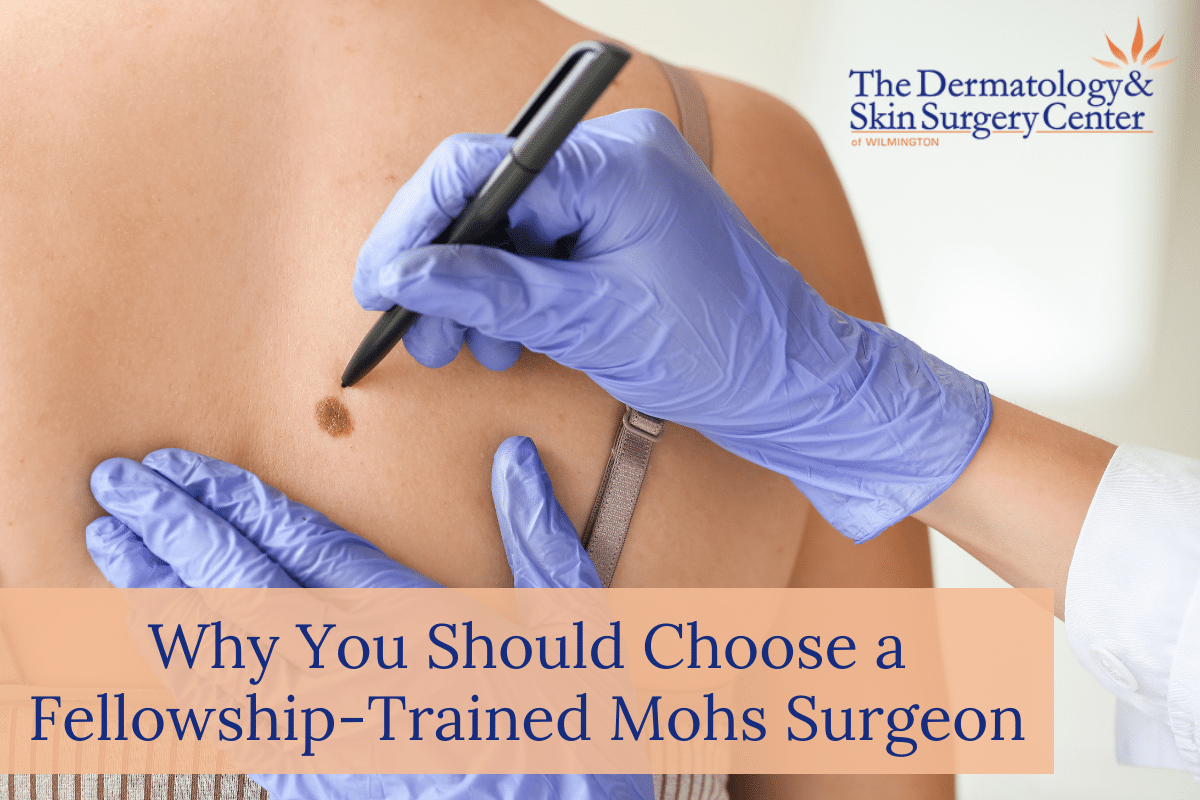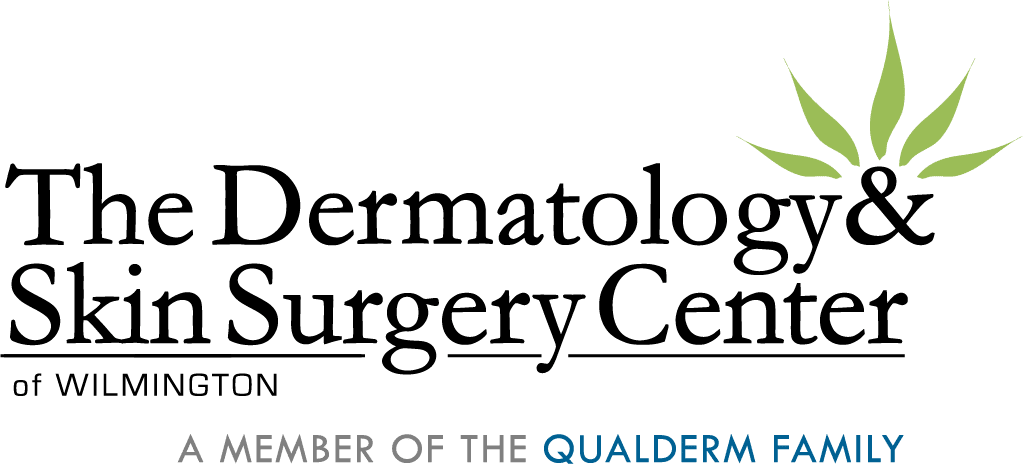Our culture promotes tan skin as a sign of beauty and vitality. However, sun-lovers have…

Remarkable Benefits of Choosing a Fellowship-Trained Mohs Surgeon
Do you know if your Mohs surgeon is fellowship-trained? Many Mohs surgeons have completed additional specialty training in the form of surgical fellowship following their residencies, but other Mohs surgeons have not.
Those that have not completed formal fellowships are often called society-based Mohs surgeons due to their membership in an organization known as the Society for Mohs Surgery. There are a few key differences between fellowship-trained Mohs surgeons and society-based Mohs surgeons and it is important to know the differences between the two.
Read our quick guide on Fellowship-trained vs. Society-based Mohs surgeons. (And why you should choose a Fellowship-trained Mohs micrographic surgeon if you have an upcoming Mohs surgery!)
Fellowship-Trained vs. Society-Based Mohs Surgeon
A dermatologist may receive specialized training to become a Mohs surgeon by completing a fellowship approved by the American College of Mohs Surgery (ACMS) and the Accreditation Council for Graduate Medical Education (ACGME) to become a fellowship trained Mohs surgeon.
Dermatologists who are members of the American Society of Mohs Surgery (ASMS) have not completed training that is formally recognized by the ACGME (which governs residencies and fellowships for all physicians in the United States) and may not have completed any additional training in Mohs surgery.
Fellowship-Trained Mohs Surgeon
Dermatologists who train at an American College of Mohs Surgery fellowship accredited program go through years of extensive and specialized training to become experts in performing Mohs micrographic surgery.
A fellowship-trained Mohs surgeon has completed four years of college and four years of medical school (earning them the title of M.D.), these eight years of schooling and education are then followed by a one-year internship, three-year dermatology residency, and one to two additional years of Mohs surgery fellowship training.
The additional one to two years of comprehensive training further expands their knowledge of Mohs surgery and their experience performing this specialized skin cancer treatment.
To be accepted into the American College of Mohs Surgery fellowship program, applicants have to go through an extremely rigorous and competitive review and selection process. This ensures they are well prepared for the program and that they have the necessary prior knowledge and experience to optimally succeed.
Society-Based Mohs Surgeon
A society-based Mohs surgeon does not have nearly the same amount of training or experience as a Fellowship-trained Mohs surgeon. They may not have completed a residency in dermatology approved by the ACGME (which governs all residencies and fellowships in the United States), and they may not have completed any dedicated specialty training in Mohs micrographic surgery.
The American Society of Mohs Surgery’s goal is to provide further education and skin cancer training to physicians who have not undergone extensive training in Mohs surgery in a post-residency program.
The requirements to join the ASMS are significantly fewer than the American College of Mohs Surgery. Instead of a collective twelve years of rigorous education, training, and hands-on experience, dermatologists applying for a society-based training program with the American Society of Mohs Surgery simply have to attain the following:
- A completed residency in dermatology or a related field
- Documentation of 75 or more Mohs cases performed as the primary surgeon (a maximum of 45 of these cases may have been performed as part of the applicant’s dermatology Residency training)
- Two letters of recommendation from other board-certified dermatologists
- Submission of two Mohs cases that they performed post-residency within the last two years
- Score of 70% or higher on an exam that includes both written and practical portions
- Participation in the ASMS annual peer-reviewed program
The level of individual experience and complexity of surgeries performed is variable amongst society-based Mohs surgeons.
When it comes to skin cancer, it is sensible to choose an extensively trained Mohs surgeon that delivers the best chance of treating and curing your cancer. In choosing a fellowship-trained Mohs surgeon you are ensuring your surgeon has received the training necessary to treat even the most complex skin cancers.
Benefits of Choosing a Fellowship-Trained Mohs Surgeon
As mentioned above, Fellowship-trained Mohs surgeons have to go through an additional one to two years of training. There are a few unique aspects of this training that transform these doctors into exceptional Mohs surgeons.
- They learn more about operative and non-operative education, pathology, and tumor reconstruction, as well as gain exposure to long-term results, cancer recurrences, and complications.
- They are paired with an accredited, long-standing American College of Mohs Surgery surgeon who has demonstrated proficiency and expertise in Mohs surgery.
- They must participate in a minimum of 500 Mohs surgery cases during fellowship; those they participated in during their residency do not count.
- They learn how to optimally read and interpret slides of tissue samples removed during a Mohs surgery.
- They are required to perform a variety of Mohs surgeries involving different reconstruction techniques (from simple closures to extensive skin grafts).
At the end of their fellowship, these Mohs surgeons have unmatched proficiency, knowledge, and hands-on experience with every aspect of Mohs surgery.
Whether interpreting the tissue sample slides to create an accurate map of the skin cancer or using a comprehensive reconstruction technique to minimize potential scarring, Fellowship-trained Mohs surgeons have the skills and knowledge to optimize this procedure and its outcomes.
Find Your Fellowship-Trained Mohs Surgeon at The Dermatology & Skin Surgery Center of Wilmington
At The Dermatology & Skin Surgery Center of Wilmington, our Mohs surgeon – Dr. Landon Stigall, M.D. – completed a Fellowship in Mohs Micrographic Surgery and Cutaneous Oncology. This means he received the highest level of training to become exceptionally qualified in performing this specialized procedure to make sure his patients have the best chance for an optimal outcome.
Furthermore, Dr. Stigall is one of the only Mohs surgeons in eastern North Carolina who has been specially trained to perform Mohs surgery for the treatment of melanomas.
If your healthcare provider has recommended Mohs surgery as a skin cancer treatment and you are in the Wilmington area in North Carolina, choose our Fellowship-trained Mohs surgeon for your procedure! Contact us today to learn more about Mohs surgery at The Dermatology & Skin Surgery Center of Wilmington.
High-Quality, Effective Dermatology in Wilmington, NC
If you’re ready to schedule your skin cancer evaluation or treatment, get in touch with the Dermatology and Skin Surgery Center of Wilmington. Call us at (910) 782-0028 to schedule a skin consultation.

